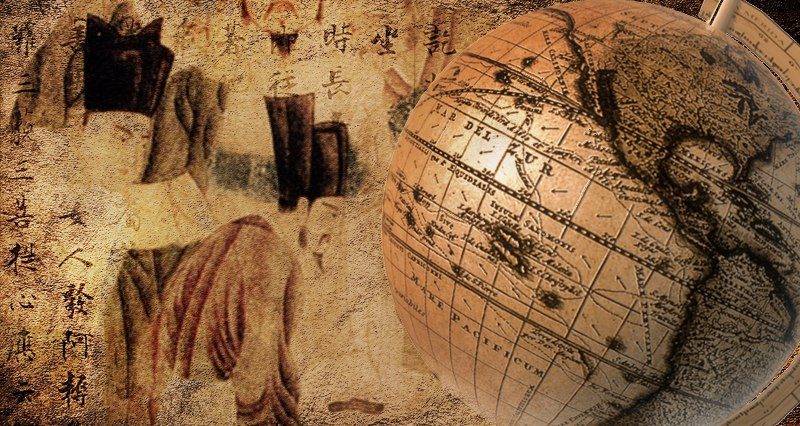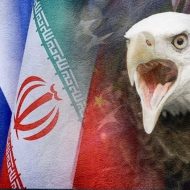By Yuwen li
Isaiah Berlin, a British political philosopher, once outlined a phenomena he called bent twig theory, which suggests that a twig can easily be bent when pulled downwards strongly, but it will always rebound as quickly and violently as it was pushed as a result. He compared the bent twig to the social mindset or spirit of the public when a nation falls into crisis. This metaphor perfectly describes Chinese mentality in light of the unprecedented coronavirus pandemic. When the virus was spreading quickly among people, the public spirit was deeply aggravated. However, after almost everyone was mobilized to play some part in saving the world, the public spirit snapped back, aroused and activated. In the course of this process the distinctive spirit, or, more specifically, the “ethos” of citizenship became a crucial part of China’s exemplary response to the difficult situation and the fight against the pandemic. After much struggle and sacrifice, China is now at the brink of winning the battle over the pandemic– yet, for the Chinese people, the ethos that was stimulated and exhibited during the fight will continue to echo into the future.
Invoking the Chinese ethos is part of my attempt to clarify the actual feelings and attitudes of the Chinese people after undergoing this unprecedented disaster, including revisions of their concepts of the self and the collective, core moral concepts, the preservation of personal dignity and respect and understanding of the meaning of public life. To simplify, I am interested in examining what kind of characteristic spirit or sentiment the Chinese exemplified while battling the deadly disease. No doubt, a useful way to begin this task is to consider some of the ways in which the Chinese ethos has been employed in order to meet the challenge of such a sudden social crisis.
There is no doubt that the predicament caused by the coronavirus brought deep and complex problems before the Chinese government and its people. It is true that there was a short period of panic among the local people who were infected and unable to be hospitalized in time. There was also a short period of chaos among local people who were enclosed in the city and unable to travel freely. Such responses are quite natural and will occur in all nations and countries as the coronavirus spreads globally. There is no lesson in this for policy mistakes other than noting the innate fear at the bottom of the heart of the average citizen. However, a good citizen will soon realize that quarantine is the only way to protect his life and hence the lives of others. During an emergency, all necessary measures must be taken to protect public order and the lives of citizens. This is a genuine rule underlying all policies, regardless of the form of the politics, past or present.
Where there is a crisis, there is patriotism. The patriotism shown in the combating coronavirus in China is being exemplified in three central aspects: firstly, everyone strives to protect private hygiene and public health by putting on a mask, preventing themselves from being infected and spreading the virus to others. The general awareness of the need to protect oneself and the motivation of maintaining public sanitation has protected the majority against the possibility of infection on a much larger scale. Secondly, people from different walks of life have held strong at their positions, doing whatever they needed to do, helping others in whatever way they can help and devoting their efforts to win the fight as early as possible. Thirdly, the voices calling for the restoration of normal life and social order also contribute to the positive energy of patriotism. Though there have been unavoidable disputes and arguments in the process of combating coronavirus, there are even worse “viruses” among the public such as unjustifiable political prejudice, crazy rumors, racial prejudice and irrational accusations; nonetheless, patriotism has and continues to be the mainstream mentality of the people of China.
The Chinese nation has long been viewed as a unified, industrious and persevering nation which faces its challenges bravely. In combating the coronavirus, the successful mobilization of over a billion people deserves some real applause. Citizens followed orders to stay home in order to isolate the virus, while many others joined in the fight for their city and fellow citizens. It is indeed a spectacular picture of nationwide mobilization that medical staff, soldiers and even ordinary people all plunged into the anti-coronavirus war. This highlights the effectiveness of the measures taken by the government and traces the cooperative disposition of the people. It was this mentality of courage and bravery that spurred many to join the battle despite the obvious danger. Many continued their work as usual or worked even harder in order to provide adequate supplies to meet the greater need. The nation worked together as a whole to show the world that China will fight until it wins the final victory. In this same vein, all the people on the frontier of the fight against coronavirus, be they in the medical team or in logistics, deserve to be called heroes.
The German philosopher Georg Wilhelm Friedrich Hegel said that the greatness and power of the spirit of a nation should never be underestimated, that it lights up humanity like a flame, especially in times of darkness. The Chinese ethos is but the torch the people have raised in the darkness of the epidemic. The magnitude and intensity of this ethos may vary as time goes by, but it can always be expected to motivate individuals to go beyond the minimum obligation and do whatever they can to preserve their society. The Chinese ethos derives its cognitive and motivational force from each and every citizen, and thus provides a moral foundation and guiding light for progressive individuals and society during a time of crisis. In this sense, it is nothing but the innate power of the Chinese people themselves.
(Sponsored by China social science research Project: Socialism with Chinese Characteristics and socialist ethos Item No. 18JDKDB013)









Leave a Reply